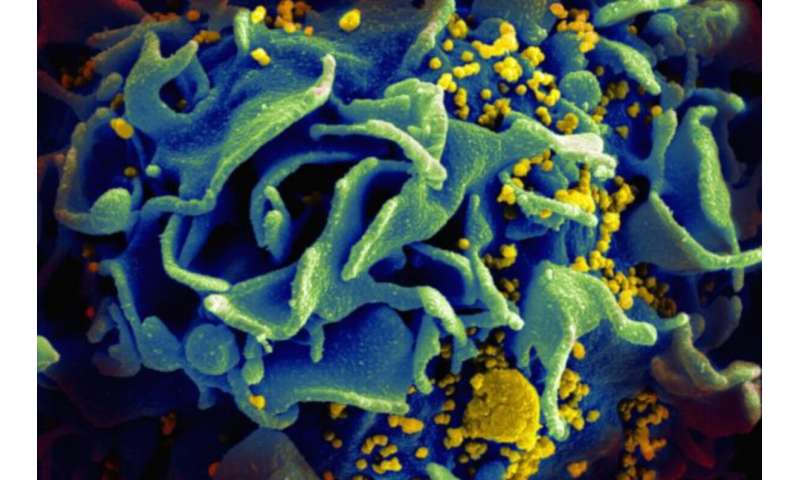HIV significantly increases risk for irregular heartbeat


HIV infection significantly increases the risk of atrial fibrillation (AF)—one of the most important causes of irregular heartbeats and a leading cause of stroke—at the same rate or higher than known risk factors such as hypertension and diabetes, according to a study by researchers at UC San Francisco.
In a database review of nearly 17.3 million Californians, the researchers found that HIV infection was associated with an 80 percent higher risk of AF vs. 89 percent for hypertension and 22 percent for diabetes. Findings appear Sept. 9, 2019, in the Journal of the American College of Cardiology (JACC).
“This is the first paper demonstrating that HIV is a risk factor for AF, and the potency of that risk is similar to other well-established AF risk factors,” said senior author Gregory Marcus, MD, MAS, a UCSF Health cardiologist and associate chief of cardiology for research in the UCSF Division of Cardiology. “Because AF can be asymptomatic and stroke may be the first manifestation, it’s important for caregivers to be aware of patients at heightened risk.”
With effective antiretroviral therapy, the life expectancy of HIV-positive patients has increased. However, previous studies have shown that these patients are at increased risk of cardiovascular diseases and sudden cardiac death, at least in part due to antiretroviral therapy. This is the first study to link HIV to irregular heartbeat, as well.
Atrial fibrillation affects an estimated 2.2 million Americans, according to the National Stroke Association, and about 15 percent of people who have strokes have AF. The stroke association estimates that up to 80 percent of strokes among people with AF can be prevented.
In the JACC study, Marcus and his colleagues utilized the Healthcare Cost and Utilization Project database to identify 17,293,971 California residents at least 21 years old (18,242 with HIV) who received care in an outpatient surgery unit, inpatient hospital unit or emergency department from January 2005 to December 2011.
Over an average follow up of 4.7 years, the data reflected 625,167 new AF diagnoses, with 1,076 in HIV-positive patients. After adjusting for demographics, number of clinical visits and cardiovascular comorbidities, the researchers found that HIV-positive patients had an incidence of 18.2 AF diagnoses per thousand person-years, compared to 8.9 in patients without HIV.
The association between HIV and AF risk was significantly higher in younger patients, African Americans and Hispanics, and those without hypertension, diabetes or alcohol abuse. The increased risk in African Americans was interesting, Marcus said, as previous studies have shown that whites are at significantly higher risk of AF.
“Physicians caring for HIV-infected patients should be aware of this strong relationship,” said Marcus, who also holds the Endowed Professorship of AF research in the UCSF School of Medicine. “Increased awareness may help in recognizing the diagnosis and consequently result in more frequent prescription of appropriate therapies, such as anticoagulation, to reduce morbidity and mortality.”
Microbial infection in HIV-positive patients also may influence AF risk. Future research should determine if antiretroviral therapies are an effective treatment, Marcus said.
Source: Read Full Article